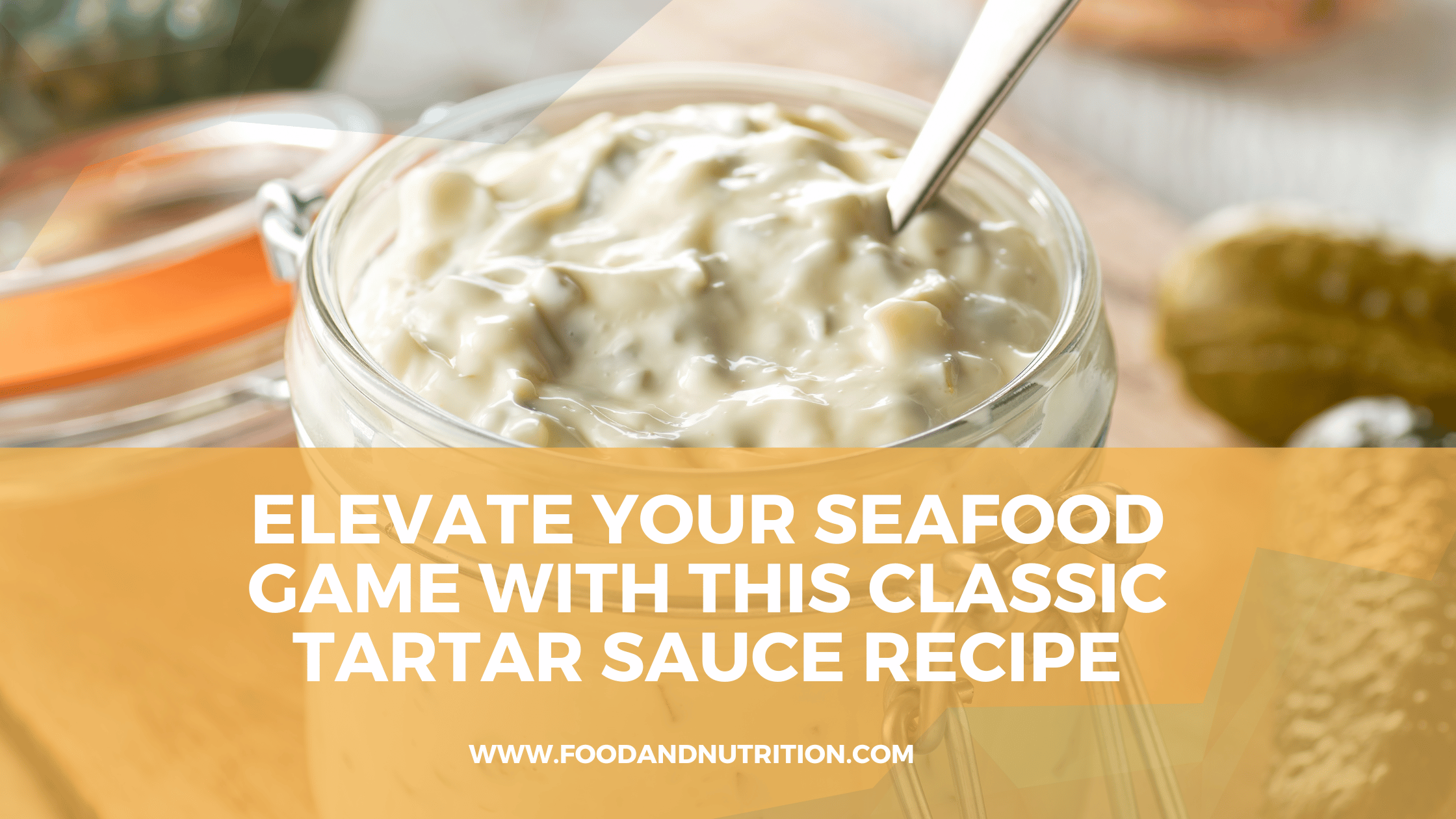Transform Your Seafood Experience with Classic Tartar Sauce

The origins of Tartar sauce can be traced back to 19th century France. Originally, it consisted of mayonnaise, capers, and herbs, serving as a condiment for fish dishes. Over time, this delightful sauce evolved as additional ingredients were incorporated to create its signature tangy flavor. Tartar sauce quickly gained popularity in seafood restaurants around the world, captivating the palates of seafood lovers. Today, it continues to grace tables and enhance the flavors of fish, shrimp, and various other seafood delicacies.
Why Tartar Sauce Has Become a Culinary Favorite
What makes Tartar sauce so beloved? The answer lies in its ability to elevate the flavors of seafood dishes. The creamy, tangy, and savory taste of this sauce beautifully balances the delicate flavors of fish and shrimp, creating a harmonious culinary experience. Moreover, Tartar sauce offers versatility in its usage. Whether as a dip for vegetables, a spread on sandwiches, or a sauce for grilled meats, its transformative qualities make it an essential component in the realm of condiments. With its simplicity and deliciousness, Tartar sauce has garnered a loyal following among food enthusiasts.
Unveiling the Key Ingredients of Tartar Sauce
Tartar sauce is crafted from a handful of simple yet flavorful ingredients. The base of this sauce is mayonnaise, providing a luscious and creamy texture. Additional components include pickles, onions, capers, horseradish, and lemon juice. The pickles and onions contribute a delightful crunch and tang, while capers infuse a briny and salty note. Horseradish adds a subtle kick, and the lemon juice imparts a refreshing tang that perfectly balances the richness of the mayonnaise. Together, these ingredients create a symphony of flavors that complement seafood dishes impeccably.
Tartar Sauce
Ingredients
- 1 cup mayonnaise
- 1 tablespoon sweet pickle relish
- 1 tablespoon minced onion
- 1 teaspoon minced capers
- 1 teaspoon prepared horseradish
- 1 tablespoon finely chopped fresh parsley
- 2 tablespoons lemon juice
- Salt and pepper to taste
Instructions
- In a small mixing bowl, combine all the ingredients.
- Mix well and season with salt and pepper to taste.
- Refrigerate the sauce in an airtight container until ready to use.
Notes
Nutritional Benefits of Tartar Sauce
While Tartar sauce is indulgent in terms of calories and fat content, it offers some nutritional benefits as well. Mayonnaise, as the base ingredient, contains vitamin E, which acts as an antioxidant, protecting the body from free radicals. Pickles are a good source of vitamin K, essential for maintaining healthy bones. Onions and capers are rich in antioxidants, which help prevent chronic diseases. By incorporating Tartar sauce into your meals, you can enjoy its delectable flavors while gaining these nutritional advantages.
Inspiring Serving Ideas for Tartar Sauce
Unleash the versatility of Tartar sauce with these creative serving ideas:
- Pair Tartar sauce with fried fish or seafood dishes for a classic and flavorful combination.
- Use Tartar sauce as a dip for fresh vegetables or crispy chips, adding a tangy kick to your snacking experience.
- Spread Tartar sauce on sandwiches or burgers, enhancing the taste and texture of your favorite handheld delights.
- Transform grilled chicken or pork by drizzling Tartar sauce as a savory sauce, infusing them with a burst of tangy goodness.
The possibilities are endless when it comes to exploring the diverse uses of Tartar sauce!

Conclusion
Tartar sauce is not just an ordinary condiment; it is a culinary masterpiece that has stood the test of time. Its rich history, delightful flavors, and versatility make it a must-have addition to your seafood meals. Embrace the tangy journey of Tartar sauce and elevate your seafood game to new heights!
- Rediscovering Lebanese Salad: A Refreshing Delight with a Rich Heritage
- Eating Your Way to Healthy Blood Pressure: A Guide to Lowering Hypertension
- Perfect Roasted Leg of Lamb: A Timeless Delight for Your Table
- Romesco Sauce: A Flavorful Spanish Delight That Elevates Every Dish
- Master Cooking with Salt: A Guide to Types & Uses – Elevate Meals
- Unlock the Flavor: The Ultimate Guide to Cooking Salts
